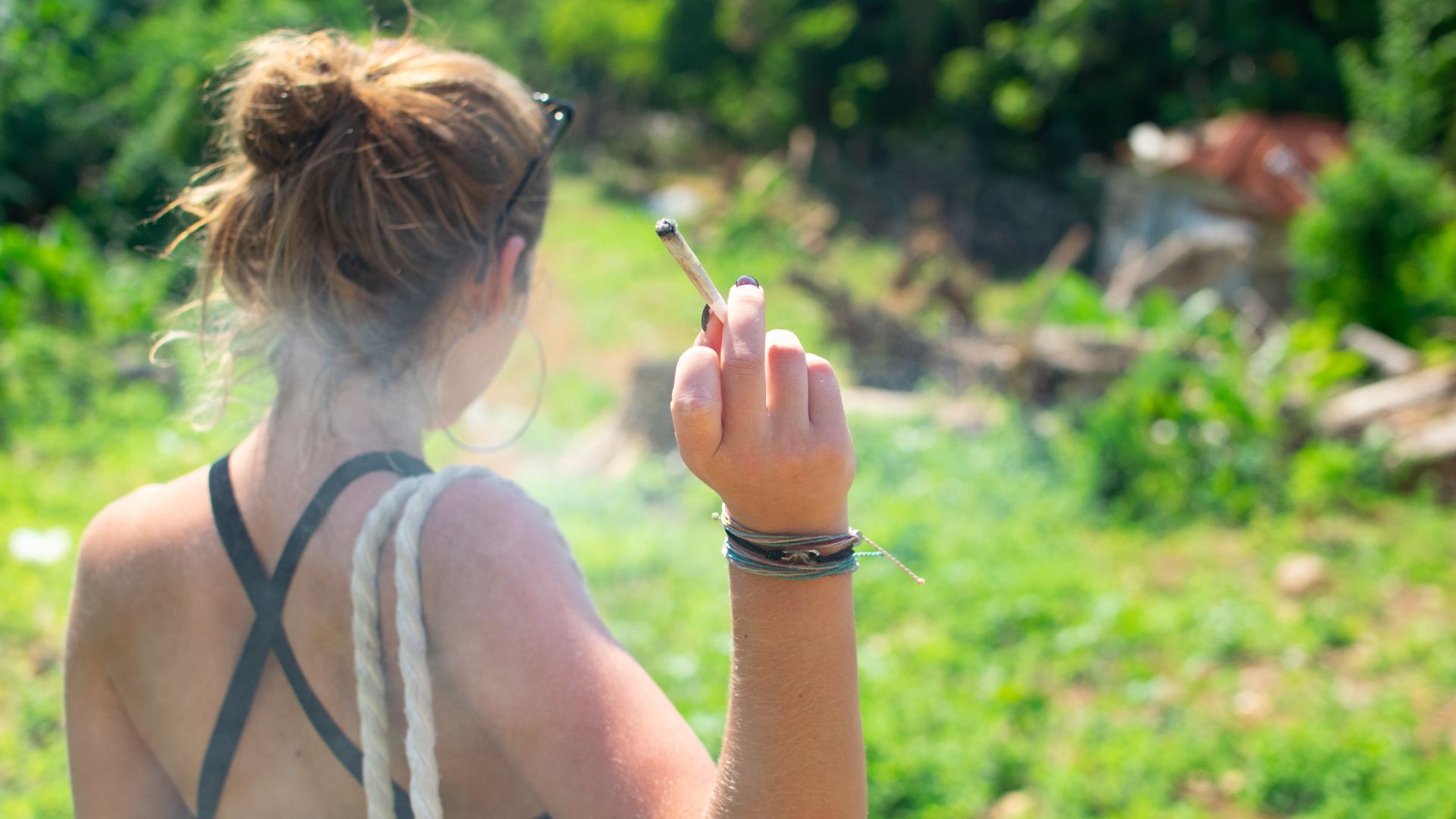
Can Cannabis Help Treat Substance Abuse?
When we say “cannabis and substance abuse”, some may think cannabis is the substance being abused.
While it’s true that cannabis abuse exists, and it would be remiss not to acknowledge that, this is not the only side of the story. In fact, cannabis can be (and is) used to treat substance abuse disorders, helping many people who suffer from addiction to potentially lethal substances such as opioids, alcohol and tobacco.
A 100 years of prohibition means we still need more ‘gold standard’ research to fully determine how ‘safe and effective cannabis really is as a treatment for addiction. However, we do have a raft of ‘real world’ and ‘anecdotal’ evidence looking at whole-plant cannabis use as a harm reduction intervention. On top of this, we also have a range of clinical studies observing the positive effects of single cannabinoids (such as CBD) on addiction.
Cannabis Users Abuse Less Harmful Drugs
Dr Ben Sessa (MBBS BSc MRCPsych) is a psychiatrist working in adult addiction services since graduating from UCL medical school in 1997. Today, he has expanded his experience and research into exploring both cannabis and psychedelic drug therapy to help some of the hundreds of thousands of people in the U.K who have fallen victim to substance misuse.
As part of his work, Dr Sessa performed a short survey in 2020 (1) which identified that 92.3% of respondents found that cannabis positively impacted their physical or mental wellbeing. This included improvement in issues relating to poor appetite, low mood, post-traumatic stress disorder (PTSD) symptoms, pain, relaxation, sleep and anxiety. 56.4% reported that they used fewer other substances, which are known to be more harmful. These substances included heroin (51.3%), tobacco (82.1%) and alcohol (over 50%).

Anecdotally, many, many people confirm the same.
One study (2), in which 56 in-depth interviews were conducted between 2017 – 2019, detailed the experience of a range of young people who were suffering life on the streets. In Canada, where the study was performed, it’s estimated that there are between 35,000 – 45,000 young people living in a similar situation – many of whom turn to potentially extremely dangerous drugs (primarily alcohol, fentanyl, heroin and meth) as a result.
The vast majority of participants in the study used cannabis every day; however, none of the participants described using cannabis for purely recreational purposes. Many, in fact, specified that they used cannabis as a means to stay away from other, more harmful drugs, with many referring to themselves as “clean off drugs,” “sober”, or “drug-free.” when exclusively using cannabis.
Although the possible harms of cannabis abuse are not to be ignored, it’s evident that many people feel cannabis helps them stay healthier. A sentiment echoed across a large number of studies.
“I’ve Been Completely off Heroin Ever Since”
Jane Hinchcliffe, 44, from Yorkshire, has lived with pain almost all her life. At first, she was wrongly diagnosed with fibromyalgia but then discovered much later that it was FND and CRPS – chronic illnesses considered to be two of the most painful conditions known to man. She was put on her first prescription opiates by her GP, age 15 – the maximum strength co-proxamol. As a result, she was in a permanent state of opioid withdrawal, which eventually led her to develop a heroin addiction.
“My husband died of an overdose in 2014, and that saved me in a way – I knew I had to get off opioids altogether, medication included.” Says Jane, “But my pain was extreme, so I didn’t know how that would be possible. Until cannabis came along.” Jane says
“I managed to source some Rick Simpson Oil (RSO – a form of whole plant cannabis oil), which allowed me to start reducing the opioid medication again. I had intended to reduce opioids slowly, but RSO was so effective at reducing pain and withdrawal symptoms that I just went cold turkey! I’ve been completely off heroin ever since and weaned myself off opioids entirely in 2018, using cannabis and psilocybin. I’ve also since managed to quit alcohol too, which I had been using to manage social anxiety. Turns out cannabis is much better for that!”
Jane is not alone in her experience.
“Cannabis Saved my Life”
Earlier this year as part of our Med March promotion, we asked for stories from the Seedsman Community on whether or not cannabis has made a positive impact in their lives.
Domonico is a part of our community, regularly sharing updates on his growth on our Facebook page. What we didn’t know was just how vital growing and consuming cannabis is for him.

“I got my medical license so I could legally use marijuana to help with my opiate addiction. I used opiates to self-medicate for anxiety, PTSD, depression, and pain from a broken back as a child. Now marijuana helps combat all of those issues, as well as any cravings for opiates.
Growing my own is just as therapeutic, as it keeps me busy and gives me something to do that I enjoy and that I can be proud of. It’s really helped me get my life back. It helped me go from being homeless, strung out, and in and out of jail, to having my own family, house, car, and basically everything I’ve ever needed in life.”

You can read Domonico’s full story here.
The Opioid Crisis
The opioid crisis, caused by both prescription opioids such as fentanyl and illicit opioids such as heroin, is widespread in the U.K and US. Approximately half of all drug poisoning deaths registered by the ONS in 2020 involved an opiate. In 2017, the US opioid epidemic was declared a public health emergency after resulting in millions of deaths (3). But an investigation published in JAMA Internal Medicine(4) found that the annual rate of deaths due to overdose on an opioid painkiller was nearly 25% lower in states that permitted medical cannabis. This suggests that cannabis may very well be being used as a safe and effective alternative for many opioid users.
As well as using whole plant cannabis to treat and manage addiction, there’s tremendous potential in CBD, which has been shown to effectively combat existing addictive behaviours. A study published in the 2019 American Journal of Psychiatry(5) observed positive effects of treating long-term heroin users with CBD, who experienced significantly fewer cravings and anxiety induced by the drug cues as a result of taking a regular dose of the cannabinoid.
What Causes Addiction?
Cannabis certainly appears to have the potential to replace many opioids and act as a safer form of medication. However, to understand how cannabis can help with substance use disorder, we must first understand what addiction really is in the first place.
Dr Ben Sessa explains, “Most drugs can be, and are, taken benignly by most people most of the time. It’s not the act of taking drugs that causes someone to develop substance abuse disorder. Addiction is a mental health issue, and all mental health issues are a combination of biological, psychological & social factors; addictions especially so, which is why this condition is overrepresented in low SES groups & people with attachment difficulties.”
Many people, like Jane, also turn to illicit substances as a form of relief – from pain, anxiety, depression and many other physical and mental factors that negatively impact their lives.
“By introducing medical cannabis, which has been proposed as a useful treatment option in a variety of different physical and mental health conditions, including pain management, multiple sclerosis, epilepsy, depression and anxiety, it’s possible to provide relief in a much safer way.”
Does Cannabis Help or Hinder Addiction?
Given how difficult it can be to obtain a legal cannabis prescription in the U.K, most people who use cannabis in this way self-medicate with cannabis sourced from the illicit market. Unfortunately, this can present problems.

“Illicitly sourced medical cannabis comes without guidance and is often of unknown quality and provenance,” says Sessa “ When prescribed specifically for the treatment of addiction, the ratios of cannabidiol constituents can be adjusted and tailored to need, then gradually stepped down over time. By doing this, it’s likely that many reported negative effects of cannabis, such as paranoia, lethargy and memory impairment, could be ameliorated.”
CBD to Treat Alcoholism
According to alcoholchange.co.uk, there are approximately 602.391 dependent drinkers in the U.K. Only 18% receive treatments, such as detoxing at a hospital or clinic, and therapy and medications including acamprosate, disulfiram, naltrexone and nalmefene.
But now, cannabinoids and psychedelics present a new frontier for the treatment of alcohol addiction, with some tremendous results.
One pathway that is significantly altered during alcohol consumption is the 5HT serotonin system. Some studies have concluded this may be involved in the development of alcoholism, contributing to cravings and relapses as well as anxiety and dysphoria(6). As a result, it’s thought that regulating this system may go a long way in combating alcoholism. CBD may be able to do just that due to the way the molecule activates serotonin and endocannabinoid receptors to achieve balance within the body(7).
In another exciting revelation, a group of researchers peer-reviewed 26 studies spanning 44 years exploring the effect CBD had on animals who had been administered ethanol via a ‘self serve’ push lever. The results showed reduced alcohol consumption in the animal subjects regularly treated with CBD(8). They were also less likely to relapse, even under stress and showed reduced markers of anxiety and impulsivity, thought to be the result of the regulation of cortisol release due to increased levels of the body’s own endocannabinoids.
Can Cannabis Help me Quit Smoking?
Addiction to tobacco is perhaps the most common form of substance abuse, which, according to the CDC, kills more than 7 million people worldwide every year.
When sourced from the illicit market, cannabis is often smoked and mixed with tobacco, which is far from ideal if you’re trying to quit smoking. However, cannabinoids in cannabis, such as CBD, have been shown to help mitigate addictive behaviours of smoking and can be taken as an oil or vaporised.
The results so far are very promising. One randomised controlled trial, published in the Addictive Behaviours(9), explored how CBD could help with addiction to tobacco cigarettes. The results revealed that those given a CBD inhaler to use every time they felt the need to smoke reduced their number of cigarettes by 40%, while those with the placebo showed no difference.
The Takeaway
Although cannabis use comes with its own potential harms, there’s no denying that, when used appropriately, this plant appears to offer a relatively safe and novel way to treat and manage addiction. Particularly when used under clinical guidance. As we learn more about how each of the 140+ cannabinoids work, hopefully, experts in the field of substance abuse disorders will continue to utilise this powerful tool, which could potentially save many thousands of lives.
- https://journals.sagepub.com/doi/10.1177/2050324519900067
- https://journals.plos.org/plosone/article?id=10.1371/journal.pone.0236243#abstract0
- https://pubmed.ncbi.nlm.nih.gov/32799573/
- https://jamanetwork.com/journals/jamainternalmedicine/fullarticle/1898878
- https://ajp.psychiatryonline.org/doi/10.1176/appi.ajp.2019.18101191
- https://www.ncbi.nlm.nih.gov/pmc/articles/PMC6826824/
- https://www.ncbi.nlm.nih.gov/pmc/articles/PMC6319597/#:~:text=Clinical%20studies%20indicate%20that%20cannabidiol,of%20neuropathic%20pain%20are%20unknown.
- https://pubmed.ncbi.nlm.nih.gov/33998889/
- https://pubmed.ncbi.nlm.nih.gov/23685330/
Cultivation information, and media is given for those of our clients who live in countries where cannabis cultivation is decriminalised or legal, or to those that operate within a licensed model. We encourage all readers to be aware of their local laws and to ensure they do not break them.
Source link












